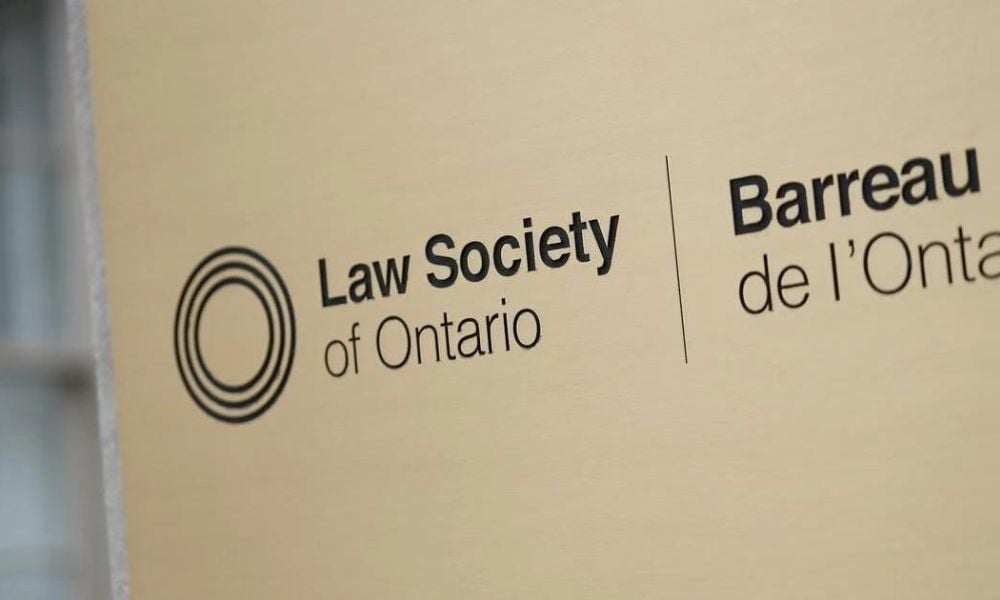
Tribunal decision saying 'A.A.' meets good character test under appeal

The Law Society of Ontario is moving to stop a man who admitted to sexually abusing children from becoming a practising lawyer.
In the case of A.A v. Law Society the tribunal found that “A.A.” is of “good character” and eligible to be licensed as a lawyer, despite the society having argued against allowing him to be licensed. It is now appealing the decision of the tribunal, an independent body that processes, hears and decides regulatory cases between the law society and Ontario lawyers or paralegals, including their licenses.
“Given the public interest in this decision, the Law Society wants to ensure the public is aware of the current status of this matter,” the regulator said in a news release.
The society is in the process of filing a motion for a stay of the tribunal’s decision pending the appeal.
“If the law society is successful on this motion, and a stay is granted, the stay would preclude A. A., who is not licensed as a lawyer, from being becoming licensed, and therefore he would not be able to practise law, pending the disposition of the appeal.”
The society says the tribunal erred by “misapprehending” the evidence in a manner that impacted its analysis on the central question of whether the respondent was of good character, prosecutors argue in the notice of appeal. In so doing, the decision “is unreasonable and cannot stand.”
Specifically, the appeal says the tribunal failed to property address “further evidence elicited at the hearing that the applicant was not candid, including his failure to disclose at any time that he discontinued taking Lupron, a medication which acts as chemical castration, as soon as he returned to Canada.”
It also noted A.A. lived with his young children, including the one with whom he had been sexually involved with, without the care of a physician and without taking Lupron, “thus putting his young children and others at risk again.”
The tribunal also erred in “not placing sufficient weight on the importance of maintaining public confidence in the legal professions.” It also failed to the public interest concern of the order to anonymize his name.
It also erred by finding A.A. to be of good character while at the same time imposing a condition on his licence restricting his practice to a type of client and does not meet with minor children while unsupervised.
The tribunal also did not properly set out how this condition would be enforced and what would be the consequences of failing to meet them or being unwilling to do so.
According to the tribunal’s July 25 ruling, A.A. sexually abused children on three occasions in 2009 that involved touching them and being touched by them while clothed.
He was living in another country with his family at the time. After being confronted by the father of one of the children, A.A. disclosed what had happened to several people, including his then-wife and a child protection agency. He was never criminally charged but had to be supervised when around children.
On returning to Canada, he completed his legal education and first applied for a licence in 2012 without disclosing the sexual abuse. The law society learned about the abuse through an anonymous tip and A.A. abandoned his application in 2017. He now admits he behaved “dishonestly” during that first application process.
A.A. has said he wants to “focus his practice in the service of marginalized communities,” according to the decision from the three-member tribunal panel made up of Jay Sengupta, Eva Krangle and Brian Prill. He added he “believes that he can seek redemption by being of use to others.”
The panel concluded in the July decision that he now of good character because he has been “open and diligent in acknowledging his past conduct and its impact and has actively sought treatment for his sexual dysfunction.”
A psychiatrist diagnosed him as suffering from a “paedophilic disorder in remission,” meaning that while he showed symptoms in the past, he no longer displays any now and his overall risk level is low.
“We are persuaded that the applicant has a genuine commitment to continuing therapy and vigilance to ensure that he does not reoffend against minors,” tribunal member Jay Sengupta wrote.
“We also accept that his actions show that he has recognized the harm that deception, both of himself and those around him, has caused and would cause.”